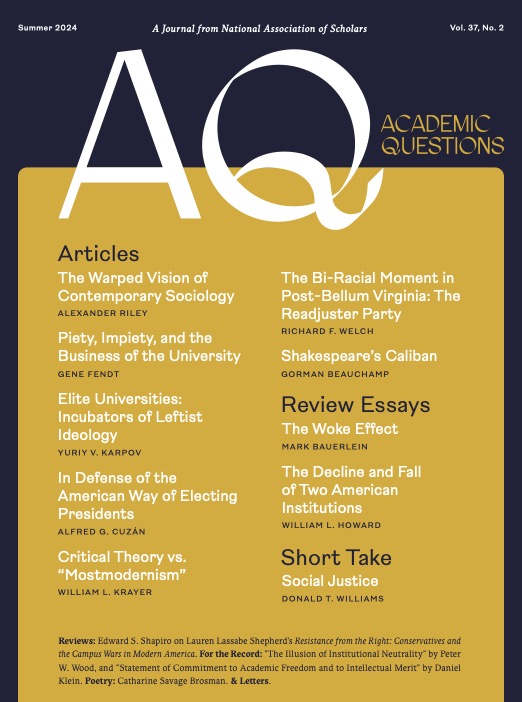For a paltry sum, I recently purchased Lost Gold and Silver Mines of the Southwest. This Baedeker to bounty was published by Dover, preserver of many worthy works of yore. “Yore” in this case is 1963 when the author Eugene L. Conrotto first issued Lost Desert Bonanzas, which in turn drew on earlier essays that appeared in Desert Magazine and other fugitive sources. The one hundred or so pithy chapters come under tantalizing titles such as Adams Diggings, Stewart’s Ace-in-the-Hole, Pegleg, The Lost Escalante, and Vampire Bat Gold. Conrotto provided maps to the approximate locations.
A lot has happened since 1963 and perhaps some of the lost mines have now been found and Tucson now has a class of wealthy prospectors who are enjoying retirement thanks to Lost Squaw Hollow Ledge or Sierra Sombrera. The lost mines, of course, come with colorful legends. The Lost Escalante, for example, was a gold-mining operation run by the Jesuits with the help of “friendly Papago Indians,” i.e. slaves. The Spanish government expelled the Jesuits from the territory in 1767, but before the Jesuits left, they secreted their gold in a vault sealed with an iron door. Some years later, the Apaches raided the old mining camp and slaughtered the Pagago. With them died the secret of the “mine with iron door.”
I bring this up not because I harbor an interest in picking my way through the Catalina Mountains or such locales. I spend my free time in the gold-less hills of Vermont. But I do savor the idea that great deposits of wealth, inexplicably lost, might someday be recovered. Substitute the word “minds” for “mines,” and imagine the guide book that might be written about what happened to Shakespeare, or whither the lost liberal arts?
Of course, some writers have been trekking up this arroyo for a while. Victor Davis Hanson and John Heath in 1998 gave us Who Killed Homer? The Demise of Classical Education and the Recovery of Greek Wisdom, which is a close cousin to Lost Gold and Silver Mines of the Southwest. Hanson and Heath were not alone. Around the same time one of NAS’s elder statesmen, John Ellis, gave us Literature Lost: Social Agendas and the Corruption of the Humanities. The trail of tears continues. I think of Richard Ovenden’s 2020 lament, Burning the Books: A History of the Deliberate Destruction of Knowledge, which traces the mania of bibliocide back to the smashing of Assyrian tablets by disgruntled non-readers.
Readers of Academic Questions can no doubt supply a motherlode of other examples of important works discarded by heedless enthusiasts for bright new baubles; and saddened scholars telling the tale (“The sad account of fore-bemoaned moan,” as Bill S. says in Sonnet 30). But there are always new disgraces to document. Speaking of Bill, this issue offers Gorman Beauchamp’s takedown of the anti-colonialist impulse to turn Shakespeare’s Caliban into a revolutionary hero, who stands for the rights of indigenous people. Caliban, of course, is no more indigenous to the island in The Tempest than the Palestinians are to the land they would like to irrigate with Israeli blood. Beauchamp makes a shipwreck of some of the favorite conceits of the savages that now run Shakespeare, Inc.
Also in this issue, sociologist Alexander Riley puts on his goggles and blasts his way through a series of videos through which the American Sociological Association furthers its efforts to inter the corpse of classic social science inquiry. In “The Warped Vision of Contemporary Sociology,” Riley observes how the great project of sociology, born in the nineteenth century, as an effort to achieve scientific understanding of social order, has been run into the ditch by intellectual interlopers. It is interesting that “decolonization” has become a watchword of the progressive left, yet it is never applied to their colonization of whole academic disciplines.
Beauchamp and Riley can both be seen as stalwarts of tradition, but also perhaps as voices of piety, which is the theme of Gene Fendt’s essay, “Piety, Impiety, and the Business of the University.” The university is, after all, an institution whose authority hangs by the slender thread of piety. If we do not recognize the religious foundation of our search for knowledge, we doom ourselves to wander blindly—and we doom our students to the epistemological void. A university need not ground itself in religious orthodoxy but if it ignores the foundations of its basic claims, it exists in a state of mere irony.
And that’s an irony that is not constrained by ivy-covered walls or campus real estate. As Yuriy Karpov writes in “Elite Universities: Incubators of Leftist Ideology,” our fine institutions have been seeding government, the media, and all the walks of elite social and political control with graduates who are proudly ignorant of the real past and stupidly enthusiastic about the nostrums of anti-Western utopian dogmas. Karpov’s article refreshes the memory of the myriad attempts among top universities to trim education down to denunciation of the West.
Lost Gold and Silver Mines of the Southwest is not entirely about misplaced stashes of gold and silver. It includes, for example, a chapter on the “Papago Arsenal,” which is “worth double its weight in gold” in the form of antique guns and rifles, uncovered in 1874 but promptly lost again beneath the sands. Likewise this issue of AQ includes some unexpected weaponry. Alfred Cuzan’s essay, “In Defense of the American Way of Electing Presidents,” is a civics lesson in why we have the Electoral College. Apart from our general approval of colleges of all sorts, we publish Cuzan’s essay in the spirit of preserving our Constitutional republic in the age of usurpation.
Speaking of which, we also present William Krayer’s essay “Critical Theory vs. ‘Mostmodernism.’” That eye-catching term “mostmodernism” is intellectual property lawyer Krayer’s contrast to “postmodernism.” He defines the most modernist as “one who appreciates continuous improvements in science and technology as vital, and perhaps most important, to progress.” In an age in which technological advance is so often derided as oppressive and destructive, we thought we would give some space to someone who appreciates why we have food to eat and are not freezing in the dark.
We delve into history from another direction with Richard Welch’s “The Bi-Racial Moment in Post-Bellum Virginia: The Readjuster Party.” This came as a complete surprise to me when Welch submitted it. I had never heard of this post-Civil War alliance between black and white voters that rose to and then fell from power. I suspect readers of AQ will likewise be astonished by this chapter of American history, which runs remarkably counter to Nikole Hannah-Jones’s account in the 1619 Project. Another lost gold mine.
This issue also presents a copy of my recent NAS statement, “The Illusion of Institutional Neutrality.” I seem to be among the few who doubt that “institutional neutrality” is the royal road by which colleges and universities can escape the difficulty of choosing sides on public controversies. The problem I point out is that the universities always and necessarily leave themselves an escape hatch. Institutional neutrality ends the moment that the college president sees something he (or more likely she) detects an important educational interest in the controversy. The university declares itself “neutral” when it is convenient (i.e. mobs of students agitating for the destruction of Israel) and not neutral when it wants to defend a policy such as its right to enroll illegal aliens, its right to take large sums of money from America’s adversaries, and its support of global policies such as “decarbonization.”
Institutional neutrality, in other words, is a flag of convenience. Now that Harvard University in its post-Claudine Gay effort to reestablish a modicum of respectability has announced its new commitment to institutional neutrality, my essay is getting a bit of attention. The New York Times, which hardly ever acknowledges the existence of NAS, interviewed me about this essay and quoted me in its Harvard story.
This issue of AQ also presents an excellent review contrasting recent books by conservative authors Richard Hanania and Christopher Rufo. Hanania’s The Origins of Woke tracks wokeness to the lair of civil rights law gone wrong. Rufo’s America’s Cultural Revolution tracks it instead to the long march of the Marxists through the institutions. The inexhaustible Bauerlein does justice to both. And readers can look forward to the next issue of AQ in which David Randall reviews another contestant in the “Where did Woke begin?” sweepstakes, Eric Kaufmann’s The Third Awokening.
We present another double review, by William Howard, dealing with rambunctious books by Mark Levin and Oliver North (with David L. Goetsch). Levin’s The Democrat Party Hates America and North’s American Gulags: Marxist Tyranny in Higher Education and What to Do about It, are diatribes, not scholarship, and are described by Howard as “red meat for the conservative base.” I make no assumption that readers of AQ belong to that base. Some may well be vegetarians. But it is worth all our time to know what is happening at the poles of our polarized land.
We have a few more items in the issue, including a review by Edward A. Shapiro of Lauren Lassabe Shepherd’s Resistance from the Right: Conservatives and the Campus Wars in America, and a statement by Daniel Klein on Commitment to Academic Freedom and Intellectual Merit. That’s enough high-grade ore from the mines.
Except that we return to the Southwest and lost treasures with this issue’s poetry selections, Rio Abajo by the long lost Mary Austin, Chapala Midnight by the equally forlorn Witter Bynner, and Metates by our own Catharine Savage Brosman, reflecting on her visit to Acacia Ranch House, Arizona. Eureka!
Photo by Orxan on Adobe Stock














